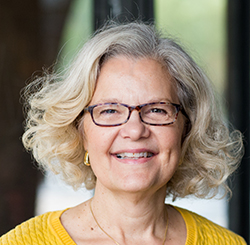Educating Nurses to Improve Patient Care

North Park's Wanda Burns explains the push to raise education standards for nurses
CHICAGO (May 1, 2014) — In 2011, the Institute of Medicine released a report that forever changed the nursing profession. Titled "," it called for major overhauls in education requirements for nurses. At its heart was a recommendation that by 2020, 80 percent of all nurses should have a bachelor of science in nursing degree, compared to just over 50 percent today.
Since the report, hospitals and care networks around the country have made shifts to meet the recommendations. Hospitals hoping to earn the Magnet designation from the American Nurses Association, limited to 400 health care organizations around the globe, must meet education minimums for their nursing staff. States have even introduced legislation to mandate education levels. Nurses are returning to school more than ever, with enrollment in RN to BSN programs tripling over the past decade.
“Research shows that outcomes for care from a nurse with a bachelor’s degree compared to a nurse with an associate’s degree are significant,” says , a North Park alumna and coordinator of the in the School of Nursing and Health Sciences. “This includes crucial elements of care, including improved patient safety, reduced infections, fewer readmissions, and overall fewer errors.”
“Nursing is quite different from when I entered the field,” Burns adds. “You’ve got to do better than you’ve ever done, with more technology, the patients are sicker than ever, and you have to do it with fewer resources than you’ve ever had. Nursing is caught in the middle of our national question of how can we be doing healthcare better.”
And it’s not just about performance; it’s also about workload. As healthcare settings become more complex, so do the job descriptions of nurses. As the Institute of Medicine’s report says, the role of a modern nurse includes competencies in “leadership, health policy, system improvement, research and evidence-based practice, and teamwork and collaboration.”
“Our BSN completion program is geared towards bridging the gaps in the healthcare system,” says , dean of the School of Nursing and Health Sciences. “We focus on ethics, research, and community health to provide nurses with a broad perspective on patient care. Our nurses are not just holding patient’s hands, they are advocating for patients and by doing so, remaking the way the healthcare system operates.”
Burns echoes this importance: “Until you go back to school, you base all of your nursing on what you and the people around you have always done. We’ve got to get a higher level of evidence on which to base our nursing action. Patients lives are at stake here.”
But returning to school is not an easy requirement, especially for working adults with already full lives. “It’s difficult to return, especially as an adult,” Burns says. She completed her master of science in nursing at ºÚÁÏ³Ô¹Ï while working full-time, and is currently working on a doctorate in nursing practice from the University of Wisconsin-Milwaukee.
“I have students in my program that are struggling with being back in the classroom. One of the things I tell them is that education is transformational. And I’ll say that out of personal experience. Every time you go back, you are absolutely transformed by the time you get to the other side.”
Burns began teaching at ºÚÁÏ³Ô¹Ï in 2006 and became the coordinator of the degree-completion program for RNs last fall. She appreciates North Park’s face-to-face classes and the close-knit relationships that can only form in those settings. She also values North Park’s urban location and intercultural opportunities.
“Students are taught to value the cultural distinctives of their patients, including attitudes toward pain, childbirth, alternative and complementary medical approaches, family roles, death and grieving, and more,” says Burns. These topics are built into the curriculum in classes like .
Many of the RNs in the program bring their experience of living and working in these communities. “When you’re talking with a group of people with years of experience as nurses, and if they feel safe in that environment, they start engaging in some of the richest dialogue,” Burns says. “That is how we begin to move things forward.”
Use @npunews to . Learn more .
Next Steps
Learn more about ºÚÁϳԹϒs in the .

